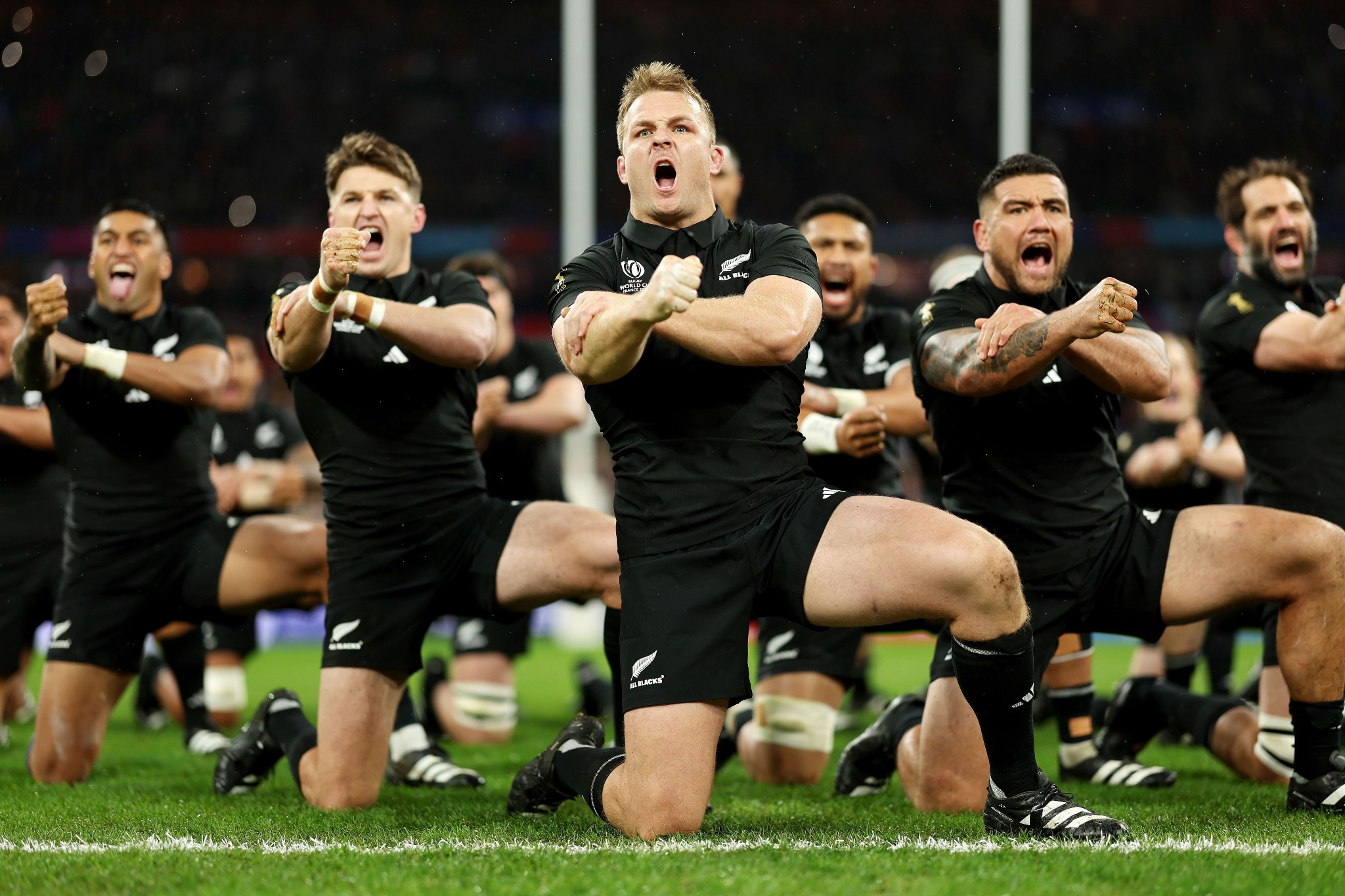
All Blacks: Legacy, Dominance, and the Challenge of Reinvention
By Kevin Rademeyer, Prescience Media
Few sports teams command the respect, admiration, and global attention of the New Zealand All Blacks. Widely regarded as the most successful sports team in history, they are an institution in world rugby. Their dominance spans decades, from the men’s and women’s 15s game to Sevens, Super Rugby, and World Cup triumphs. The All Blacks’ impact on the sport goes beyond trophies; they have shaped how rugby is played, coached, and celebrated worldwide. Their cultural significance in New Zealand is matched only by the reverence they command internationally, serving as a benchmark for excellence, innovation, and professionalism.
For decades, New Zealand rugby has been synonymous with consistent success. From World Cup victories in 1987, 2011, and 2015 to repeated Super Rugby and Sevens championships, the All Blacks’ dominance has been unprecedented. Their legacy is not just in winning, but in how they win—through innovation, strategic foresight, and a relentless pursuit of excellence. As a young observer of the sport, I remember being captivated by the visionary decision in the mid-1980s to convert provincial centre Michael Jones into a back-row star. “It was about finding talent, thinking ahead, and having the courage to act,” Andy Haden once explained. Jones went on to score the first tries in the 1987 and 1991 World Cups—a record that still stands and underscores the All Blacks’ ability to spot and maximise extraordinary talent.
The 2025 Rugby Championship, however, is proving that even giants must evolve. Records are falling, and the Kiwis face questions not seen in decades. The defeat to Argentina in Buenos Aires, combined with discipline issues and tactical missteps, has sparked a lively debate among former players and pundits. Laurie Mains, who coached the All Blacks from 1992 to 1995, reflected on the loss: “The great All Blacks teams of recent years have played a fast-tempo game and kept the ball moving. Now, they need to innovate around the breakdown to secure faster recycling and get the ball out before the defence can set.”
Questions about personnel and positions are also resurfacing. Is Reiko Ioane a wing or a centre? Does the midfield combination of Jordie Barrett and Billy Proctor provide the balance required at Test level? Is Ardie Savea best utilised at No.8 or flanker? And leadership succession—from Ian Foster to Scott Robertson—has drawn scrutiny, with some questioning whether the guiding principles of the All Blacks’ legendary culture are being upheld. John Kirwan, reflecting on Argentina’s performance, noted: “It was probably the worst performance I’ve seen from the All Blacks for a while. The tackles were missed, the defensive line wasn’t coming up, and execution faltered. But I’m not worried—every team has an off-day, and this squad can bounce back.”
The competitive landscape of rugby has shifted. Argentina, Australia, and South Africa are now genuine threats, challenging the aura that once made the All Blacks seemingly invincible. Victor Matfield captured this shift perfectly: “There are five or six teams now that can beat anyone on any day. That opens up the Rugby Championship and makes it fantastic for competition.” This is a far cry from the era when New Zealand could dictate outcomes with near certainty, and it has exposed areas of vulnerability—from lineout tactics to breakdown efficiency and wider attacking options.
Yet, the All Blacks’ strength lies not merely in raw talent but in culture. Their emphasis on leadership, discipline, and forward planning has long been a global reference point. From Sir Graham Henry and Wayne Smith to Laurie Mains and Robbie Deans, generations of coaches and visiting teams have studied the New Zealand model, seeking to replicate their methods. Visiting Super Rugby coaches often treated All Blacks training sessions as a finishing school, a testament to their influence beyond their national borders.
The 2025 Rugby Championship is more than a competition; it is a test of identity, innovation, and legacy. The All Blacks must adapt without losing the ethos that has defined them. Decisions made now—around player roles, tactical innovation, and succession planning—will determine whether New Zealand rugby continues to set the standard or finds itself navigating a more level playing field where historic dominance offers no guarantees.
One thing is certain: wherever the All Blacks go, history and expectation follow. As Scott Robertson and his coaching team analyse performances, strategise, and innovate, the world watches. Eden Park, Buenos Aires, and beyond are not just stages for 80 minutes of rugby—they are arenas where leadership, culture, and legacy are constantly tested. And though the world of rugby has evolved, one truth remains: the All Blacks, past, present, and future, are an enduring symbol of excellence that continues to inspire the sport globally.

Post a comment